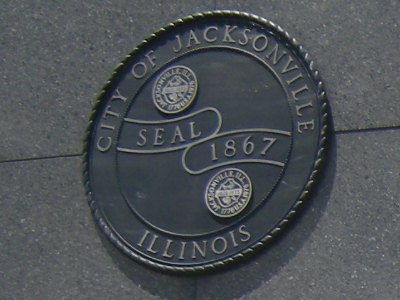The Jacksonville City Council is one step closer to having all the steps implemented for legalized adult-use cannabis within the city’s limits. The council voted 7-0 to implement the occupational tax rate of cannabis at 3%. Three of the council were not present for the special meeting on the vote. The special meeting had to be called on short notice because the Illinois Department of Revenue needs at least three months advance notice to implement the tax so the city can collect.
Mayor Andy Ezard says the council is looking towards future possibilities. “I feel that the council made an appropriate call on this. We’re doing this for security purposes to makes sure when and if the legislature changes their mind on enacting the tax in the full. I think, by a consensus vote today, that [the council] is ready to move forward in that they feel the city needs a piece of the pie on marijuana sales because it becomes legal on January 1st. I respect the council’s decision. I think if it’s becoming legal that Jacksonville should try to get something out of that as a city to help in an infrastructure or various projects – and that’s the appropriate way to use [those funds.]”
The council did have some short debate about the 3% rate. Aaron Scott, Don Cook, and Mike Wankel immediately called for the 3% rate, with Steve Warmowski calling for 3% at the current term with room for flexibility down the road to change the rate. Erin White-Williams and Brandon Adams asked the council for 2.75 and 2 percent respectively saying that the lower rate would invite in more opportunity. Williams said that the Village of Jerome in Springfield had called for the lower percentage rate to attract business away from the City of Springfield. Adams asked for exploration into a local 3% alcohol tax since he viewed cannabis and alcohol on the same measure of public safety, addiction, and problems. Attorney Dan Beard said he was unsure of state statute on local taxes on alcohol, but would look into the matter if the council wanted to pursue the measure.
Mayor Ezard invited concerned citizen Anthony Stephens to speak prior to the vote. Stephens asked the council to stay in the essence of the legalization bill passed by the State Legislature. “It was specifically designed to provide social and criminal justice reform and to positively impact communities that had been disproportionately touched by the War on Drugs. The City of Jacksonville and this city council have a unique opportunity, and I believe an obligation, to be a leader and a role model for the other municipalities throughout the state on how to implement this law through a clear and definitive interpretation. One thing is for certain, beginning on January 1st, the sale and consumption of marijuana will be legal in every county, city, and village in Illinois – that has already been adjudicated. It now becomes the responsibility of this council to enact the legislation in the best interest of our community. I think [the council] can do that through zoning regulations saying where dispensaries can be located and through the allocation of the tax dollars that will flow into the city’s coffers.”
Stephens went on to say that there are two separate Jacksonvilles that are currently in place. He hopes that the tax money will give equality back to all sides of town, since he believes that drugs have disproportionately effected one portion of town over the other. “Just a few short months ago, as the election season was upon us, everybody talked about moving Jacksonville forward as one city – where everybody in all portions of the city would grow and prosper together. In my lifetime, I’ve seen disparities between various portions of this city. I’m not placing any blame on anyone or anything, and it’s not just happening in Jacksonville. These areas of town do exist that are economically stressed and definitely could use the help. Specifically in this law, in the state version, says that is where this money should go to. I encourage [the council] to uphold the spirit of that law. It must be an ongoing conversation and call to action. While I might say that one portion of town needs the money over another right now, that may change in a few years when some issues are fixed. People that have suffered the most from [the War on Drugs] aren’t necessarily from any one race, but they are predominantly poor and they live in areas of the city that have the highest rates of crime.”
The city now moves forward on zoning and actually consenting to sales within the city’s limits. The council will have up until January 1st to make those decisions into city ordinances.




